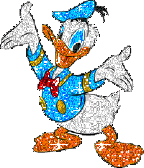
The history of computer science began long before the modern discipline of computer science that emerged in the twentieth century. The progression, from mechanical inventions and mathematical theories towards the modern concepts and machines, formed a major academic field and the basis of a massive world-wide industry
In the 7th century, Indian mathematician Brahmagupta gave the first explanation of the Hindu-Arabic numeral system and the use of zero as both a placeholder and a decimal digit.
Approximately around the year 825, Persian mathematician Al-Khwarizmi wrote a book, On the Calculation with Hindu Numerals, that was principally responsible for the diffusion of the Indian system of numeration in the Middle East and then Europe. Around the 12th century, there was translation of this book written into Latin: Algoritmi de numero Indorum. These books presented newer concepts to perform a series of steps in order to accomplish a task such as the systematic application of arithmetic to algebra. By derivation from his name, we have the term algorithm.
Approximately around the year 825, Persian mathematician Al-Khwarizmi wrote a book, On the Calculation with Hindu Numerals, that was principally responsible for the diffusion of the Indian system of numeration in the Middle East and then Europe. Around the 12th century, there was translation of this book written into Latin: Algoritmi de numero Indorum. These books presented newer concepts to perform a series of steps in order to accomplish a task such as the systematic application of arithmetic to algebra. By derivation from his name, we have the term algorithm.
Around the 3rd century BC, Indian mathematician Pingala discovered the binary numeral system. In this system, still used today to process all modern computers, a sequence of ones and zeros can represent any number.
In 1703, Gottfried Leibniz developed logic in a formal, mathematical sense with his writings on the binary numeral system. In his system, the ones and zeros also represent true and false values or on and off states. But it took more than a century before George Boole published his Boolean algebra in 1854 with a complete system that allowed computational processes to be mathematically modeled
In 1703, Gottfried Leibniz developed logic in a formal, mathematical sense with his writings on the binary numeral system. In his system, the ones and zeros also represent true and false values or on and off states. But it took more than a century before George Boole published his Boolean algebra in 1854 with a complete system that allowed computational processes to be mathematically modeled




ไม่มีความคิดเห็น:
แสดงความคิดเห็น